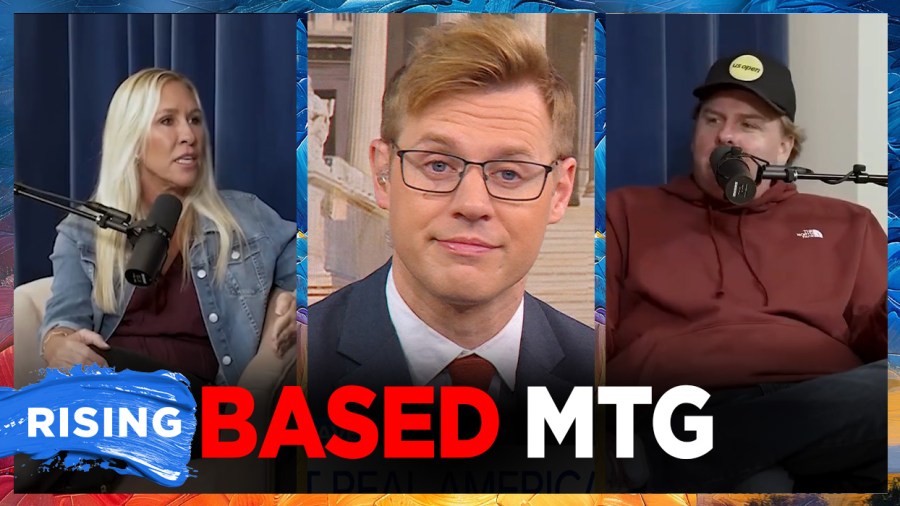When conservative activist Charlie Kirk was killed, some justified the act as political payback. When UnitedHealthcare CEO Brian Thompson was shot and killed, the alleged shooter’s anger at the health insurance industry was emphasized as if it were some kind of explanation.
Violence, in both cases, was filtered through grievance rather than condemned outright.
As a psychotherapist practicing in New York City and Washington, D.C., I see the same logic in my office: Some people believe their pain entitles them to lash out, or that grievance alone justifies destructive choices. The parallels between individual psychology and our culture at large are striking — and deeply troubling.
The question is no longer simply whether a crime was committed, but “Do I sympathize with the grievance behind this crime?”
That represents a sharp departure from the past. In the aftermath of tragedies such as the assassination of President John F. Kennedy, the Oklahoma City bombing, and the attacks of Sept. 11, Americans did not debate whether the violence was justified. Leaders across the spectrum insisted it could not be rationalized. That moral clarity gave the country a footing.
Today, in contrast, we splinter into competing narratives. Instead of condemning violent acts as such, we ask whether the victim or perpetrator aligns with our politics.
This trend cuts across the political spectrum. After the Jan. 6 attack on the Capitol, many excused rioters as patriots whose anger at a stolen election justified their actions. After urban unrest in recent years, looting was sometimes described as “reparations.” On college campuses, violent protests are reframed as trauma responses.
Each example points to the same shift: Grievance is used to blur accountability.
In my practice, I have seen how corrosive that mindset can be. A patient once came to me furious at a colleague who had undermined him at work. He insisted he had every right to sabotage the colleague in return. His anger was real, and his grievance understandable. But if I had endorsed his desire for payback, I would have been complicit in his self-destruction. Therapy only worked because he came to see that his pain, although valid, did not justify harming others.
Another patient, a college student, once described a breakup as “trauma” and argued that her suffering excused weeks of skipping classes and lashing out at friends. The word “trauma” gave her pain legitimacy, but it also offered an escape from responsibility. When she came to see that hardship did not free her from choice, she slowly rebuilt her footing. Without that shift, she might have carried her grievance as a lifelong excuse. Language that bends to justify rather than clarify halts growth and weakens accountability.
We are seeing the same dynamic in our institutions. Prosecutors hesitate to bring charges for fear of appearing insensitive. Journalists soften their language, replacing “crime” with “unrest” or “incident.” Schools and workplaces, eager to avoid outrage, lower standards and excuse behavior they once would have challenged. Over time, responsibility itself begins to look optional.
On social media, grievance has become currency. Posts that frame personal setbacks as evidence of victimhood often go viral. Calls for resilience are ignored. Algorithms reward outrage, teaching that if you want attention or leniency, lead with grievance. Multiplied across millions of interactions, the message reshapes our collective sense of what counts as acceptable behavior.
The answer is not to dismiss suffering. Many grievances are genuine and deserve attention. But empathy is not exemption. Compassion must coexist with responsibility. Without both, individuals cannot grow stronger, and societies cannot hold together.
Restoring this balance will not be easy. Leaders — political, cultural and journalistic — can model it. They should name violence for what it is, even when the victim is unpopular or the perpetrator’s grievance feels sympathetic. Universities should teach students that protest and dissent are essential, but destruction crosses a line. Prosecutors should resist the temptation to excuse crimes on the basis of motive. And the media should avoid sanitizing violence with therapeutic euphemisms.
History offers a guide. The civil rights movement drew power from grievance, but its leaders refused to excuse violence. Their moral force came from insisting that equal accountability under the law was not negotiable. That balance gave them legitimacy and strength.
After more than two decades in practice, I have learned how difficult it is to tell people that their pain does not entitle them to lash out. But I have also seen that this hard truth is where healing begins. America needs that truth now.
Jonathan Alpert, a psychotherapist practicing in New York City and Washington, is author of the forthcoming book “Therapy Nation.”














